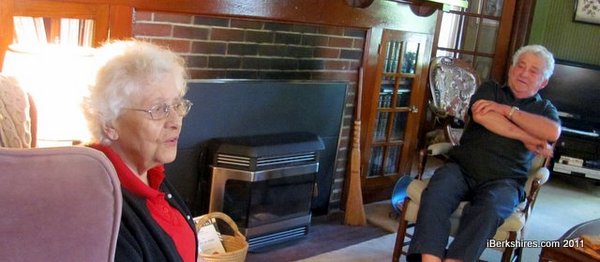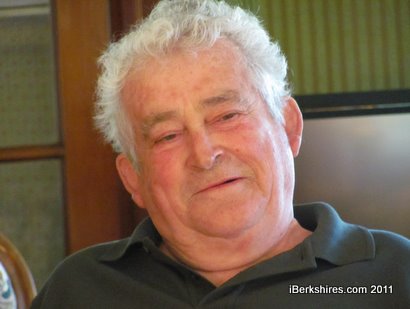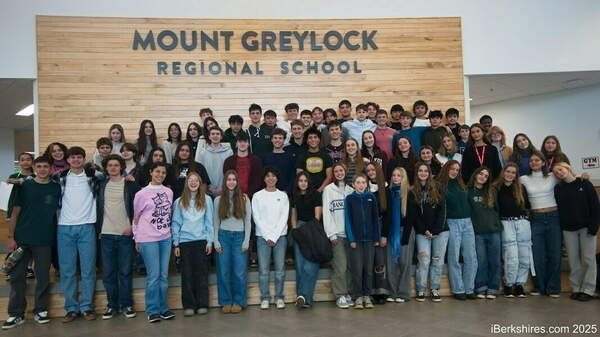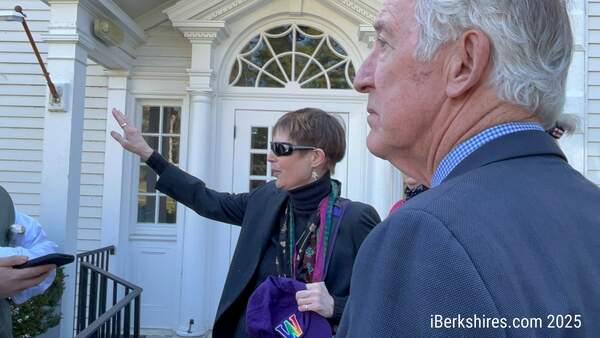
Williamstown Resident Recalls Childhood in War
.jpg)
WILLIAMSTOWN, Mass. — Marc Toureille treasures the memory of the only time his father took the family on a camping trip in their native land of France.
"Then the war came, and there were no more such activities," said Toureille, who emigrated to the United States in 1949 and has resided in Williamstown with his wife, Micheline, for 60 years. Sitting in his comfortable living room recently, he recalled those hard times 70 years ago.
During World War II, Toureille's father, the Rev. Pierre-Charles Toureille, headed a major French rescue agency while secretly helping hundreds of refugees, mostly Jewish, escape from the Nazis to safety in Switzerland and Spain.
"Because of his wartime activities, my father was not able to concentrate on his family. And we all, including him, suffered greatly the consequences," Toureille said. "I admired him, but I felt a bit neglected."
Besides struggling to survive in a country occupied by the Nazis, Pierre Toureille's family endured the additional stress of fearing his clandestine activities would be discovered by the authorities. "I knew my father was in danger. The Gestapo and Vichy [the occupation government] were always watching him, and he was interrogated by the Gestapo seven times," said Toureille.
His father convinced his inquisitors that as chaplain at the internment camp for refugees, he was only interested in fulfilling their spiritual needs. But he was actually plotting to rescue them. Toureille said he knew that if his father's subterfuge was uncovered, the whole family would be "ashes in an extermination camp."
When the Toureille family moved to Lunel, a railroad center, Marc, then age 12, became directly involved with rescues. "I would be sent to the railroad station, with two bicycles, to pick up a designated person who was most of the time Jewish, or on a couple of occasions, a downed Allied pilot," he said. "I would take the person to another town's pastor to be relayed to another person and so on until he could find refuge in a safe zone."
Toureille considers himself lucky that he experienced only one close call. "When I spotted in the distance a patrol from the Vichy Milice (which was comparable to the Gestapo), I was able to signal my charge to run on a side road and hide in the vineyards," Toureille said and then explained that his young age protected him as ID was not required until 15 or 16. He was not detained and after a while retrieved his charge.
Toureille said there were many moments during the war when he thought he might die: "Being strafed by Stukas (German aircraft) in 1940, being mistakenly bombed by Allied aircraft, and living in a town, occupied, at times by the Waffen SS (a Germany military unit infamous for acts of inhuman cruelty.) Also, a silent, unseen killer lurked in every corner, waiting to claim lives. "First came the war, then came starvation," Toureille explained.
"My mother would get up at 3 o'clock in the morning to stand on lines, without even knowing what was being doled out," he said. One morning, she was on line in front of Micheline's mother, and when their turn to obtain food came, all that was left was a basket of beans. "Marc's mother and my mother shared the beans. We cried over those beans," said Micheline. "I remember my father, a railroad man saying, 'All the trains with food go to Germany.'"
Marc was on the brink of death more than once from lack of nourishment. "My father sent me to Switzerland to recover," he said.
One of the memories that Toureille wishes he was able to erase from his mind is of being pulled from a train by German officers when he was returning to France. "They interrogated me relentlessly until I was rescued by a man from the Swiss Red Cross who snatched me up and put me back on the moving train," Toureille recalled.
Marc and his older brother were "just young kids" when they decided to do their part in the Resistance. "We used to go to the railroad yard at night and put sand in the wheel axle boxes of railroad cars, which causes hot boxes fire. And we would go to military maneuver grounds to recuperate any ammunition, explosives or arms we could find. It kept our dignity alive," said Toureille.

Because of the war, Toureille's schooling was cut short and he did not receive the education he would have liked. "We did not have a childhood," his wife said. And now the couple refers to stages of their lives as "Before the war, during the war and here."
During the war, Jewish children they knew would vanish. One of those children was a boy with whom Toureille had practiced German. "I hoped he was safe," Toureille said of the boy whose name he remembers these many years later: David Stern.
Knowing how to speak the enemy's native tongue proved to be advantageous in certain situations. "The Germans maintained a strict curfew, and I soon found out that if you could speak their language they would be more lenient, especially if you were a kid. If you made a couple of mistakes, an arrest could turn into an inoffensive language lesson," said Toureille adding, "It usually worked with the regular army; I would not have tried it with the SS."
At the end of World War II, Pastor Toureille and his wife and Marc emigrated to the United States. Marc said he originally intended to visit for a while, and then return to France and marry his sweetheart, Micheline. As it turned out, he ended up working on Mount Hope Farm in Williamstown. "Everyone was so good to me, I decided to stay," he said.
So, Micheline joined Marc here, and they wed and settled in Williamstown. He was employed by the Prentices, owners of Mount Hope Farm, for a year or so, and then took a job with Cable Mills, where he worked for 38 years until he retired.
In their earliest days in Williamstown, the couple became members of First Methodist Church of Williamstown. "We were only 19 and 20. The church adopted us and became our loving family," said Micheline. And their neighbor, Margaret Lindley, a teacher for whom Margaret Lindley Park was named, encouraged Marc to return to school, but his daughter's and son's needs, including a college education, took priority over his own.
"I was too busy working to go to school," Toureille said as he sat in the living room of his home, where a book about his father lies on a table: "A Rescuer's Story" written by Tela Zasloff of Williamstown.
Toureille said his father grew restless after the war. He relocated several times in the United States, going from one pastoral position to another, before serving as a missionary in Africa and Europe for 20 years. When he retired, he returned to France. He died there in 1976 at the age of 76.
But he had lived long enough to know that his name would be carried on by his grandson. "We named our son Pierre for his grandfather," said Toureille, "as a token of pride for his life, and he was very moved and honored by it."
Tags: WWII,















